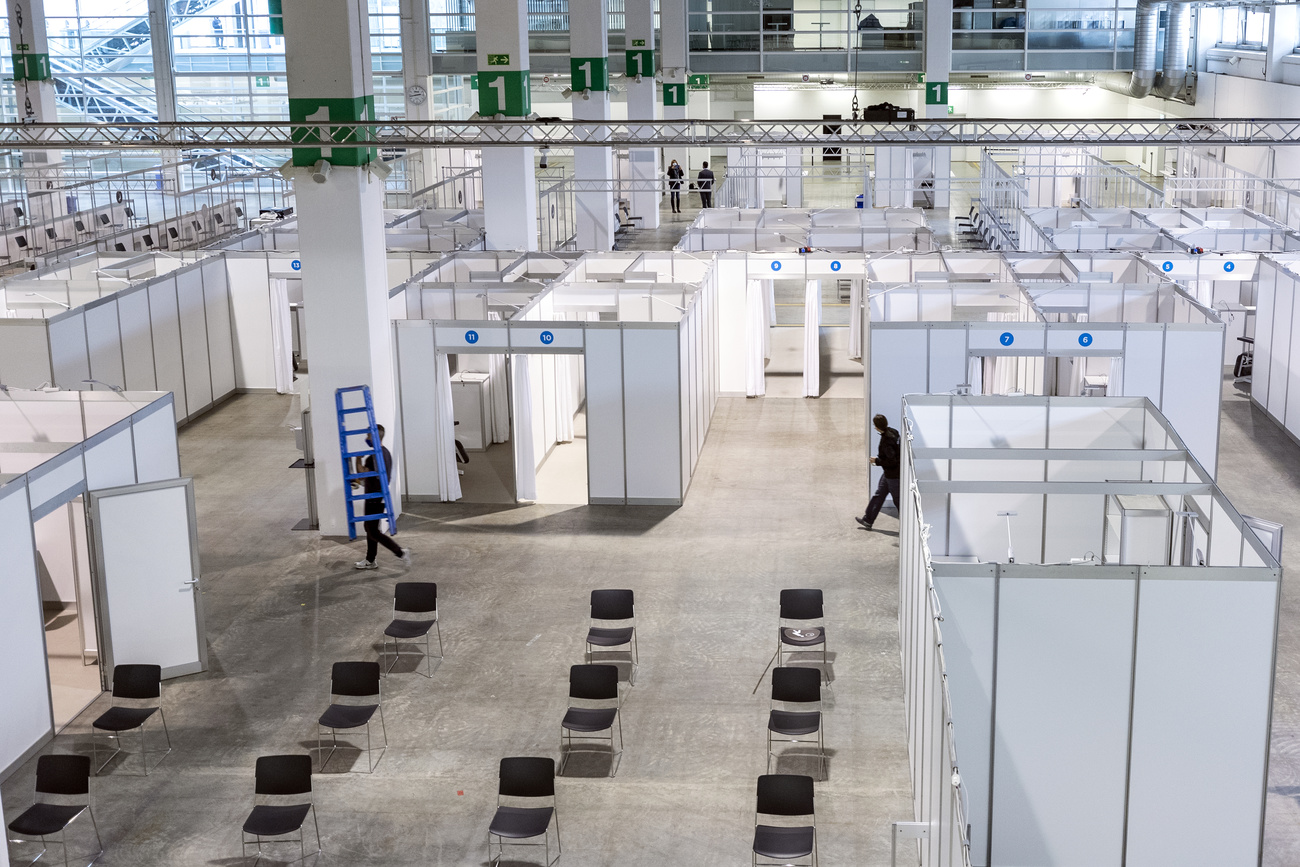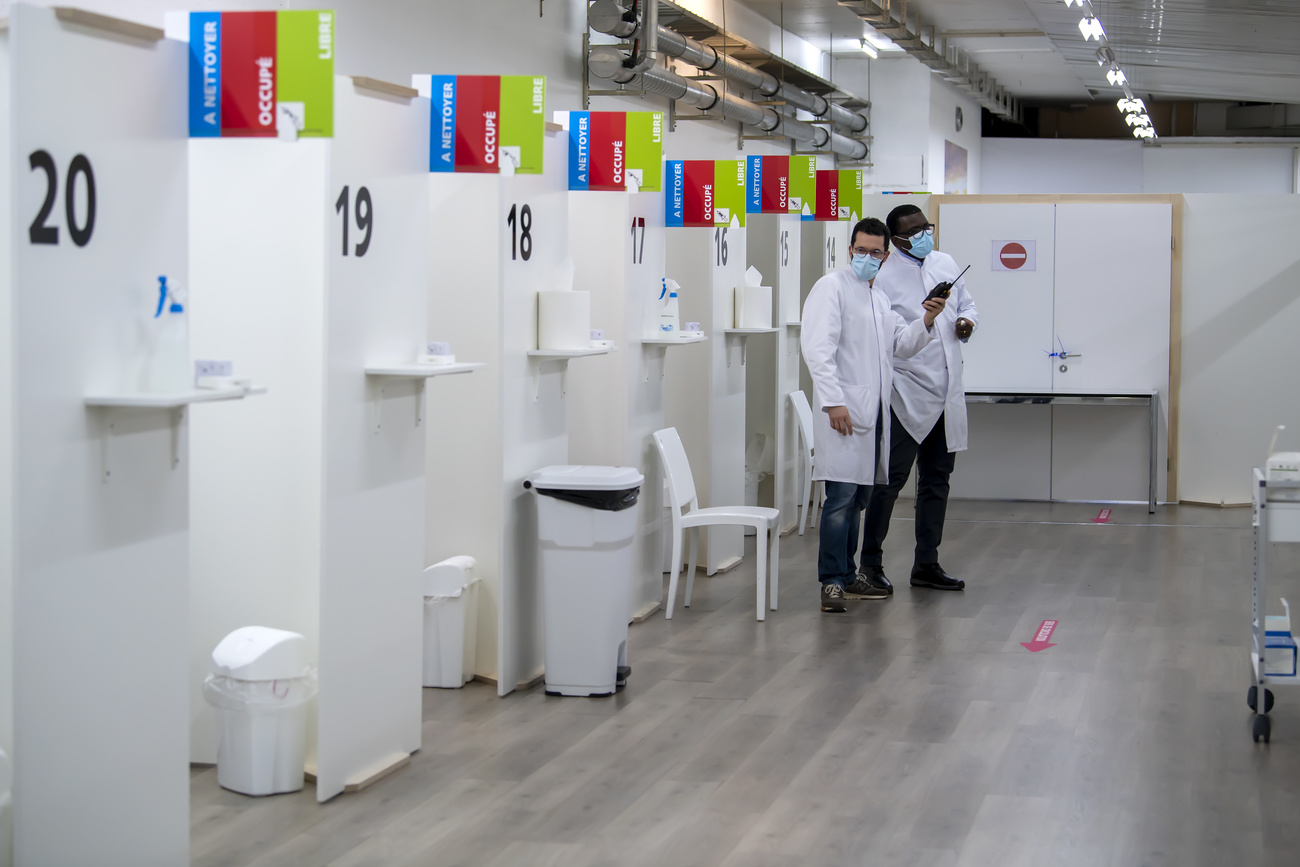
Swiss vaccination plan on ‘shaky ground’

Media reports over the weekend indicate that vaccinating everyone who wants to by the summer in Switzerland relies on meeting ambitious vaccine approval and delivery targets in spring.
Swiss authorities are facing mounting criticism over the speed at which vaccines are arriving in the country. Around 4% of the Swiss population is fully vaccinated compared to around half the population in Israel.
The German-language paper NZZamSonntagExternal link points out that 8.5 million doses are needed in April, May and June if the federal health office is going to achieve its goal of vaccinating everyone who wants to by the summer.
In total, Switzerland needs around 10.5 million doses for 5.25 million people, which is based on a 2-dose regimen for 60-70% of the adult population. Thus far, 1.3 million doses have been delivered and another 700,000 are expected over the next two weeks.
Based on a confidential paper sent to cantonal authorities last week and obtained by the NZZamSonntag, the federal health office estimates that in April around 1.9 million vaccine doses will be delivered to Switzerland, around 2.8 million in May and around 3.8 million in June.
However, of the 8.5 million vaccine doses expected, only 6.5 million come from manufacturers with vaccines that have already been approved in Switzerland. These are the vaccines from Pfizer/BioNTech and Moderna. The remaining 2 million are from AstraZeneca, Novavax and CureVac. Switzerland has ordered more than 35 million doses from the five manufacturers.
AstraZeneca is currently being reviewed by the Swiss medical regulator while the other two haven’t submitted an approval application. If the approval comes for the two biotech firms, according to the confidential paper, the doses will arrive at the end of June/July. The federal health office also points out that problems could occur if there are delivery issues or approval delays or rejections.
NZZamSonntag writes that as a result, meeting the goal is going to be tight, leaving the vaccination plan on “shaky ground”.
Getting ready for the rush
Assuming the doses are delivered, another challenge will be the capacity at the local level to administer vaccines. According to a survey by NZZamSonntag, the cantonal health departments are optimistic that they can reach 110,000 doses a day. For 3.8 million doses in June, this would require 130,000 doses are administered every day. The current rate is about 20,000 a day.
Some cantons have also resolved some of the back-end technical issues with the help of a new system called Dr. NowExternal link that helps with vaccine appointment scheduling.

More
Switzerland’s stop-and-go march to vaccinate everyone by the summer
In additional to vaccination centres, hospitals and medical practices, the health office has suggested that companies may also help speed things along. NZZamSonntag surveyed ten large companies and most of them said they have no specific plans to offer vaccinations to employees.
Swiss pharmaceutical firm Roche told the paper that they have offered the option to Basel-City authorities to vaccinate several thousand employees. Chemical company Clariant told swissinfo.ch last week that it has no plans to buy vaccine doses for its employees as it is following national vaccination plans.

In compliance with the JTI standards
More: SWI swissinfo.ch certified by the Journalism Trust Initiative






























You can find an overview of ongoing debates with our journalists here . Please join us!
If you want to start a conversation about a topic raised in this article or want to report factual errors, email us at english@swissinfo.ch.